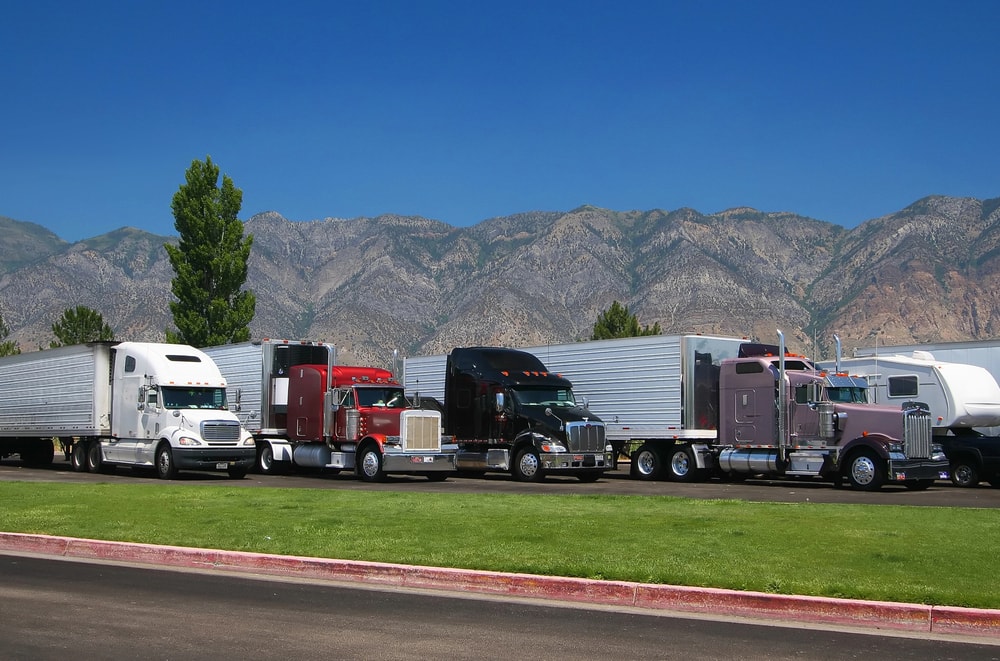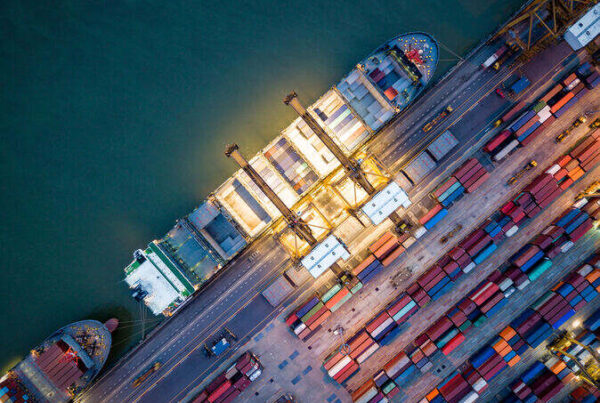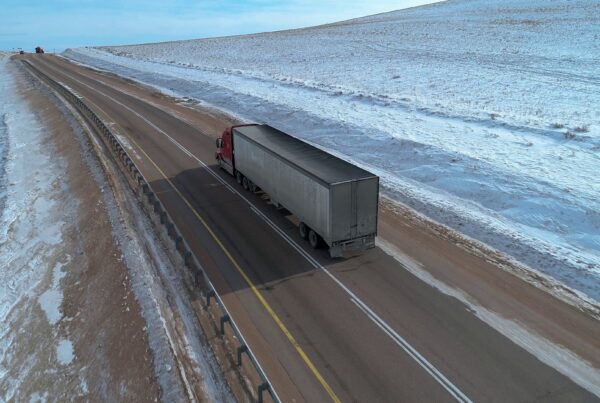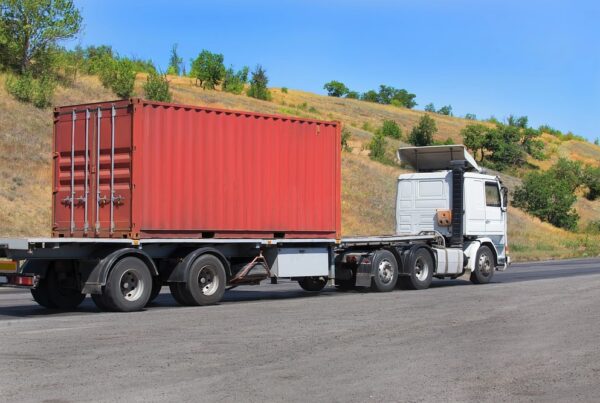Introduction
Dry van shipping is a backbone in the trucking industry and has always been a reliable way of moving goods from one corner of the country to another. Goods shipped by dry vans include a wide range of items, such as consumer products, packaged food, and electronics, making it a popular choice for transporting freight. Understanding what a dry van trailer does in the world of logistics helps to bring forth reasons why they are widely used in freight shipping.
A dry van is usually a fully enclosed semi-trailer used in freight transportation to protect cargo from exposure during transit. Unlike flatbeds or refrigerated trailers, dry vans are designed to carry anything from non-perishables up to commodities that do not require temperature control. This makes them quite suitable to move packaged items, building materials, and many other types of freight. Dry van trucks have become a very common sight on the highways; they move goods safely and contribute a great deal to the chain of logistics.

What is Dry Van Shipping?
Dry van shipping involves the shipment of commodities using an enclosed trailer designed to protect cargo from outside elements like weather and road debris. These trailers are the most common type of freight transportation. A dry van trailer is best suited to transport a wide range of goods within an enclosed structure that keeps merchandise dry and secure during transport.
Dry van trailers can manage a variety of cargo. They are very suitable for carrying non-perishable commodities, which makes them a standard for many industries. The normal cargo includes:
-
Non-perishable Commodities: Commodities that do not need any temperature control, like tinned groceries and other groceries that are in good condition to sit on the shelf.
-
Household Goods: Furniture, appliances, and other big consumer goods.
-
Building Materials: Drywall, timber, flooring, and other construction-related products.
-
Raw Materials: Various unprocessed materials to be used in manufacturing.

Why Choose Dry Van Transportation?
Dry van transportation is perfect for companies that must deliver a variety of items over a long period. These types of dry van trailers are among the most in-demand in the shipping industry because they protect cargo well, can carry diversified freight, and provide a cost-effective option for most shipping services.
Advantages of Dry Vans
Protection from External Elements:
Dry vans protect your cargo from the outside elements and are suitable for items that have to be kept dry or just plainly require security in shipment. The solid walls and roof of the trailer shield your freight from bad weather, road debris, and moisture.
Versatility in Cargo:
Probably the most significant benefits of using dry vans relate to their versatility in handling any kind of cargo, from small to larger and heavier ones. Be it a shipment of pallets containing consumer goods, industrial equipment, or just about any other general freight, dry vans can handle a wide array of shipment options.
Cost-Effective Shipping:
Dry van trailers present an economical option for the shipment of freight. They are an excellent compromise between cost and protection. Since they are widely available due to the type of goods they can carry, the dry vans make them a very practical option to several businesses.

Types of Cargo
Non-Perishable Goods:
Dry vans are a good fit for non-perishable goods, such as non-perishable food and major household items. It is an enclosed area that keeps goods secure during movement. Companies that want to relocate their products, which do not need any temperature control, can use dry vans due to their simplicity in service provision.
Building Materials and Furniture:
Dry vans are mainly used in the transportation of building materials such as aluminum, wood, and large furniture. Because of their solid structure, dry vans are suited to carry heavier and bulkier loads, thus offering a reliable means of moving materials of importance to the construction and furniture industries.
Raw Materials:
Dry vans also apply to the moving of raw materials involved in various industries. From textiles to plastic, and other basic commodities, dry vans offer safe ways of moving such goods that help in manufacturing or production.
LTL Shipments:
Dry vans are often applied to LTL shipments, and as such, they can be ideal for companies that have to deliver a load that is less than the full capacity of the truck. Less-than-truckload shipping is also done by sharing space in the same trailer between different shippers. That said, it may be an economical way to fulfill each of your particular shipping needs without using all the space on one truck.
Full Truckload (FTL) Shipping:
The advantage of FTL shipping over others, mainly for those with larger items or significant amounts of goods to be moved, is its usage of dry vans. In FTL, all your cargo goes into one whole trailer, which goes directly to its destination, therefore reducing handling and possible delays. This will highly be convenient for companies who have to deliver their goods in bulk and should arrive on time.
Expedited Shipping:
The choice of expedited shipping with dry vans will tip the scale when cargo is time-sensitive and has to reach in a shorter time. Be it due to bad weather or because of the tight schedule, the expedited services reduce the chance of delay and keep your supply chain moving.
Dedicated Brokerage Services:
Dedicated brokerage services provide tailor-made transportation options for meeting particular freight needs. This connects shippers with the best carriers who can handle every load with the much-needed care and attention it requires. Thus, dedicated brokerage services have one added advantage in such management, focusing on matching the right truck to the right load.

Challenges in Dry Van Shipping
While there are many real advantages to dry van shipping, there are some disadvantages a shipper should know about so that realistic decisions can be made.
Loading and Unloading:
One of the challenges to dry van shipping happens when one is either loading or unloading cargo. Because of the generally enclosed nature of the trailer, it becomes very difficult to move heavier items around, let alone in cases where space is extremely limited. It requires careful planning and proper equipment to load and unload freight carefully to avoid damage to the goods and/or the trailer.
Weight Capacity:
Every trailer will have its maximum weight limit according to safety measures and compliance. Overloading can be dangerous, and problems with the freight may cause fines. Therefore, you should precisely calculate the total weight of your shipment so that you can keep it within the given limit and avoid all the issues mentioned above for smooth transit.
Temperature Control:
One of the disadvantages of dry vans is that they are non-climate-controlled, which could raise an issue concerning the shipping of perishable goods. Goods whose bases of staying fresh or in a stable state require particular temperatures may be at risk since such temperature control cannot be afforded inside the van. Any such items to which this would apply would be a factor shippers should consider when considering dry van transportation. This might not be the best choice for such cargo.

Comparing Dry Vans with Other Types of Trailers
Dry Vans vs. Flatbed Trailers
Dry vans and flatbed trailers perform different functions depending on the type of cargo and protection required by the cargo. Dry vans are enclosed and, therefore, highly suitable for carrying commodities that need protection from external factors such as weather and road debris, thus being ideal for sensitive cargo. Flatbed trailers are open and designed to carry oversized or irregularly shaped items that can withstand outdoor conditions, such as construction material where ease of loading and unloading is more important than protection.
Dry Vans vs. Box Trucks and Straight Trucks
Dry vans, box trucks, and straight trucks all carry an enclosed trailer; however, they do differ in application and capacity. Dry vans are generally utilized for OTR operations and have greater cargo capacity, enabling the movement of larger volumes over long distances. Box trucks and straight trucks have reduced size and integrated single-unit construction, making these truck types more applicable to local delivery or regional movements due to increased maneuverability in urban locations for short-range deliveries.
Choosing the Right Dry Van Brokerage for Your Needs
It would be very important to scrutinize the experience a brokerage has in the trucking industry, as well as the transportation options available, and whether or not they can service certain requirements for shipping. A person would want a brokerage that has a strong history of performance, a number of services offered, and one that will be sure to communicate throughout the move. The biggest plus is working with a broker that understands the peculiar demands of dry van shipping and will accommodate their services to best fit your needs.
ShipEX Logistics offers a wide array of brokerage services centered on meeting a wide array of transportation requirements. Deeply rooted in the trucking industry, ShipEX Logistics provides flexible options in transportation that suit both routine and specialized freight shipping. Our brokerage services can help your business be matched up with reliable carriers to get your freight to its destination on time. Whether it’s one load or an intricate logistical load, ShipEX Logistics can provide reliable solutions that match up with your shipping needs.
Conclusion
Dry van shipping comes with a lot of benefits, which makes this option one of the favorites when it comes to transportation methods in the industry. From protecting cargo against outside elements, such as bad weather and road debris, to accommodating versatility in the type of goods it can move, dry vans are proven for any business with varied shipping needs. Indeed, their cost-effectiveness and ability to manage both small and large loads prove their value as a staple in the transportation sector.
In this regard, dry vans can be very reliable for companies wanting to make the freight shipping process trouble-free. Whether big or small, dry vans are going to suit your shipment with much ease. To optimize your shipping process, ShipEX Logistics can guide you through their seamless dry van freight shipping operations. They have an experienced team capable of meeting nearly all demands for dry van shipping while striving to deliver effective transportation solutions for customers. ShipEX Logistics can support your shipping needs and keep your supply chain running smoothly.




